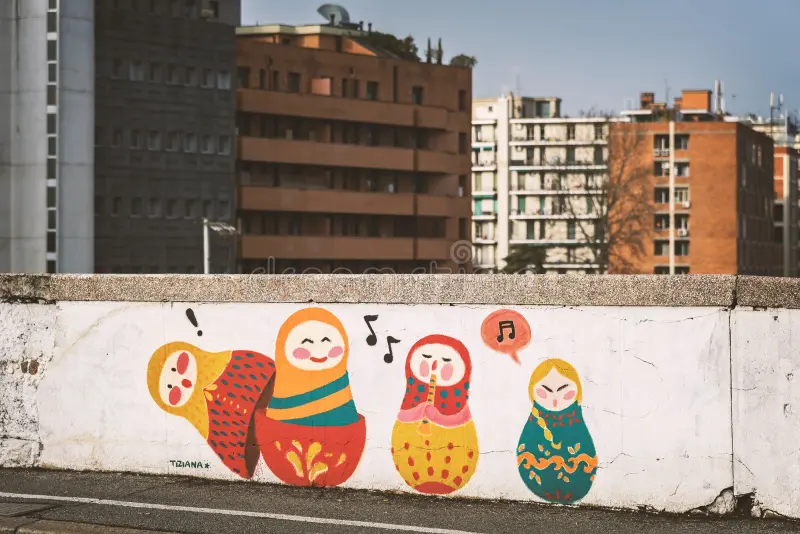Every time I give my address—Via Stalingrado—I feel like I’m participating in a quiet contradiction. Not just because I’m a libertarian living in the proud heart of Italian socialism, but because I’m also queer—and this street is named for a man who made people like me disappear.
Via Stalingrado rumbles north from Bologna’s historic core toward the industrial fringe. The city, famous for its warm terracotta facades and democratic-left governance, retains this name without apparent irony. But as a gay classical liberal, I can’t help seeing Via Stalingrado not just as a street—but as a symbol of historical amnesia.
A Street Named After Tyranny
The street’s origins lie in the Strada di Mascarella, a pre-modern road documented in the 18th-century maps of Andrea Chiesa. The ancient route, which exited the city from Porta Mascarella and curved through what is now the Fiera District, was later modernized as Bologna’s infrastructure expanded around the railway station.
For much of the 20th century, the street bore the name Via Mascarella. But in 1949, Bologna’s city council issued a resolution assigning a new name: Via Stalingrado—in honour of the Soviet city where fascism was turned back in the blood-soaked Battle of Stalingrad.
Yet the name doesn’t just commemorate a victory. It canonises a regime. In the Cold War climate of 1949, this was Bologna’s bold statement of allegiance to the international communist movement. Even as the city grew wealthy and more moderate, the name stayed—untouched by decommunisation, untouched by conscience.
“Bologna thrives on swimming against the tide of convention,” Calder observed. But there’s a difference between defying convention and clinging to contradiction.
Stalin’s Forgotten War on Queer People
The historical irony runs deeper for someone like me. As a gay man, I’m reminded that the regime honoured by my street name is also the regime that destroyed queer lives—after briefly being one of the most progressive in the world.
In the 1920s, the early Bolsheviks decriminalised sodomy and embraced an almost astonishing level of sexual modernity. Moscow psychiatrists even considered same-sex marriage between masculine-presenting women and their partners. Gay poets like Sophia Parnok published freely. Tchaikovsky’s legacy, while posthumously censored, was never erased.
Then came Stalin.
In 1933, at the dictator’s insistence, homosexuality was recriminalised—under the guise of rooting out “conspiracies” among gay men. Thousands were imprisoned, deported, or executed. Pop singer Vadim Kozin, whose romantic lyrics enraged authorities, was exiled to the Gulag. A Scottish communist, Harry Whyte, wrote a 4,000-word Marxist defence of homosexuality to Stalin. The dictator scrawled on it: “An idiot and a degenerate.”
These are not marginal episodes. They are a core part of Stalin’s legacy—one that Via Stalingrado erases with every signpost.
Bologna’s Beautiful, Blurred Memory
Bologna is red—romantically, chromatically, nostalgically. It’s also rich. This is a city of Chianti socialists and salaried revolutionaries. Its porticos shelter Prada bags and political posters in equal measure.
But to be a libertarian here is to watch the contradictions stack up like dominos. The city celebrates queer emancipation with parades and pride flags—but refuses to rename the street honouring one of modern history’s most ruthless oppressors of queer life. We’re told to let it be—”It’s just a street name.”
Yet naming is never neutral. It’s an act of honouring. Of remembering, or misremembering.
What Renaming Could Mean
To rename Via Stalingrado is not to erase history. It’s to confront it truthfully. We don’t need to forget the Battle of Stalingrad to stop venerating the man who starved Ukraine, terrorised Russia, and criminalised love.
Rename it after Harry Whyte. After Sophia Parnok. After the queer Gulag survivors. Rename it Via Libertà Individuale. Rename it Via Tchaikovsky. Anything but the current silence.
Because I can’t be the only one who finds it absurd to host a queer festival under a sign bearing Stalin’s name.
Liberty in Bologna’s Bones
Bologna doesn’t need tourists to survive. It doesn’t need libertarians to tell it what to do. But if this city of books and bikes, porticos and progress, wants to live up to its values—it must reconsider the stories its streets still tell.
Liberty doesn’t ask for monuments. But it does ask for honesty. And for those of us who live on Via Stalingrado, that begins with calling Stalin what he was—not a hero, not a name to commemorate, but a caution.
And if Bologna has the courage to rename this road—not to rewrite history, but to complete it—it will once again show the world that it is not afraid to walk against the tide.
An Italian version of this article was orginally published on Leoni Blog.
This piece solely expresses the opinion of the author and not necessarily the magazine as a whole. SpeakFreely is committed to facilitating a broad dialogue for liberty, representing a variety of opinions. Support freedom and independent journalism by donating today.
